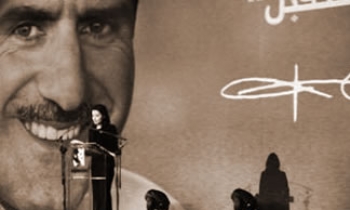ATHENS (AFP) - Newspaper editors and staff from over 60 countries met in Athens to explore ways of using the Internet and innovative tactics in their quest to lure back readers.
Daily papers worldwide face growing competition from broadcast and online media.
"These are very tough times for newspapers across the world," Mike Smith, managing director of the Media Management Center at Northwestern University, told a World Association of Newspapers (WAN) conference in Athens last week.
"We often think of Google as the 800-pound gorilla" he added, referring to the wildly successful online search engine which offers instant access to news items.
"But this is a perfect opportunity for newspapers to change and succeed," he said.
Smith noted that a variety of newspapers from North and South America have successfully embraced the Internet as a way to entice readers.
He cited the Courier-Post of Hannibal, Missouri -- the birthplace of Mark Twain -- which makes the most of this association by hosting the authoritative website on the writer's life and work.
Other examples include Las Ultimas Noticias from Santiago, Chile, which post online each of their pages in clickable format, and the San Jose Mercury News, which hired young journalists to write about teen-oriented topics such as hip-hop music in online web-log (blog) format.
"The world is full of millions and millions of people who want to do our job for us, and publish stories on their own," said WAN strategy advisor Jim Chisholm.
"Production editors no longer have staffs of 50 -- they have a staff of 50,000," he said. "The problem is, nobody knows what is good among all that."
The increasing appeal of online news sites means newspapers also have to fight harder to attract advertising. And a new rival in this field could be appearing soon in the form of cable television, argued Jerry Hill, circulation director of the St Petersburg Times in Florida.
"We need to be worried about cable," he said. "They can tell their advertisers overnight how many people watched a particular programme."
Newspapers in other parts of the world, such as Africa and much of Europe, may not have such technological concerns for now. But the more universal challenge from television is already leading dailies to sweeping changes.
"The youth of today do not read their father's papers," noted Le Monde editor-in-chief Eric Le Boucher, whose newspaper this month launched a revamped copy with more colour and larger font.
"We must attract readers from as young an age as possible," he added. "If one does not begin to read a paper around the age of 20, one never will."
Other speakers highlighted the wisdom of switching to formats that are easier to read by city commuters, or are small enough to fit in teenagers' backpacks.
Taking this approach, the Guardian in Great Britain recently downsized its own format, encouraging readers in its promotional campaign to "welcome it with not very open arms".
WAN deputy director general Eamonn Byrne argued that there is still hope in the future, as no technological invention has been able to replicate a newspaper's ease of use.
"There's nothing as viewable, as transportable, nothing as cheap and disposable and easy to use as today's newspapers," Byrne told AFP.
And for owners of small pets, nothing as absorbant?
"No, no, that never happens," he laughed.
WAN annually holds a conference for newspaper editors and marketing executives aimed at identifying strategies to increase circulation and readership.









